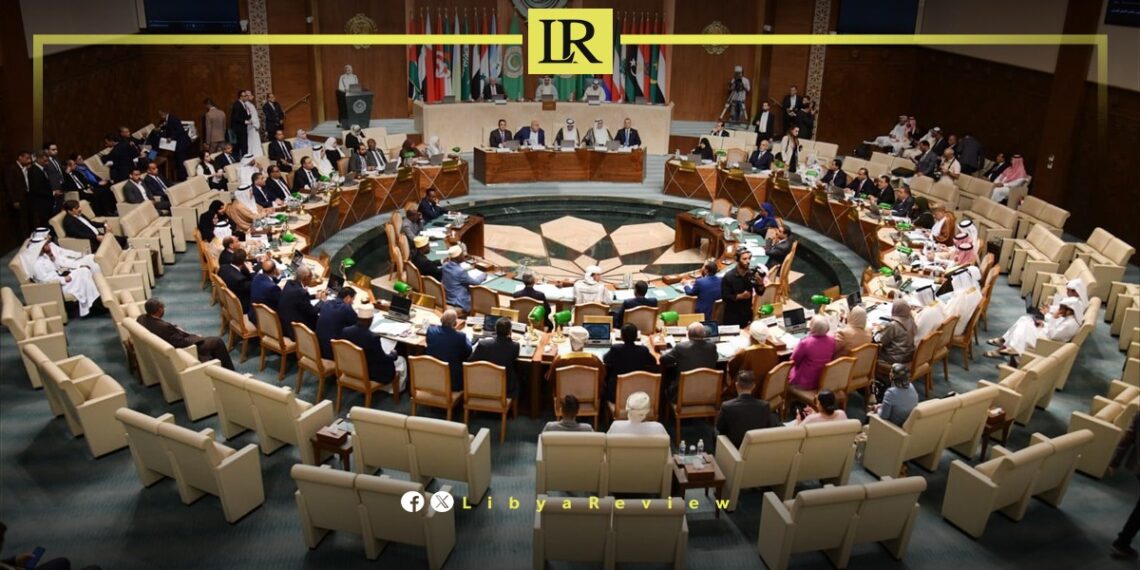The Arab Parliament has reiterated the importance of advancing towards conducting the parliamentary and presidential elections in Libya, aiming to complete the overdue democratic processes. This initiative is crucial for bolstering security and stability throughout Libya.
Members of the Libyan House of Representatives participating in the Arab Parliament—Abdulsalam Naseia, Hassan Al-Barghouthi, Abu Salah Shelbaya, and Ahlam Al-Lafi—attended the fifth and final general session of the fourth session of the third legislative term at the headquarters of the Arab League in Cairo on Saturday.
The session discussed the current situations in Arab states, with a primary focus on the Palestinian issue and the severe challenges faced by the Palestinian people, including acts of genocide and ethnic cleansing.
The Arab Parliament renewed its support for the Palestinian cause, advocating for the people’s legitimate rights in accordance with international law.
Furthermore, the general session deliberated on proposed resolutions and legislation raised by committees following preparatory meetings. The agenda included monitoring and addressing political developments in Arab countries over the current year and seeking resolutions for regional crises through political means. The session also considered the current economic conditions in the Arab region and promoted collaborative Arab efforts.
The assembly reviewed a parliamentary vision for countering the movement of terrorists across Arab nations, including legislation to criminalize their travel and transfers.
Additionally, the session highlighted the grave developments in Sudan, posing significant risks to the Sudanese people’s resources, security, stability, and territorial integrity and the comprehensive concept of Arab national security.
The session emphasized the need for a comprehensive political solution to the Yemeni crisis, aiming to alleviate the suffering of the Yemeni people.
Libya has been in chaos since a NATO-backed uprising toppled longtime leader Muammar Gaddafi in 2011. The county has for years been split between rival administrations.
Libya’s economy, heavily reliant on oil, has suffered due to the ongoing conflict. The instability has led to fluctuations in oil production and prices, impacting the global oil market and Libya’s economy.
The conflict has led to a significant humanitarian crisis in Libya, with thousands of people killed, and many more displaced. Migrants and refugees using Libya as a transit point to Europe have also faced dire conditions.


